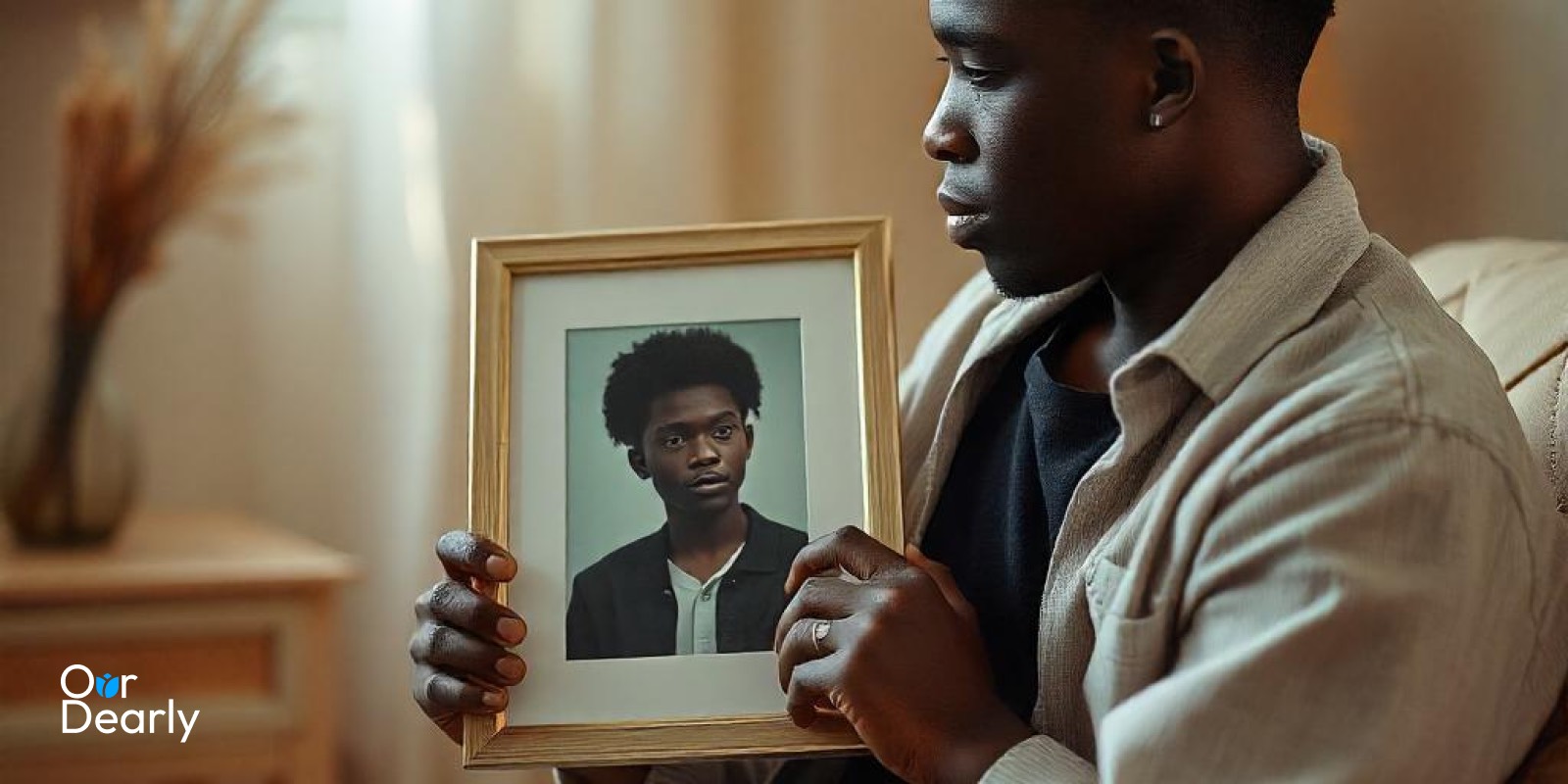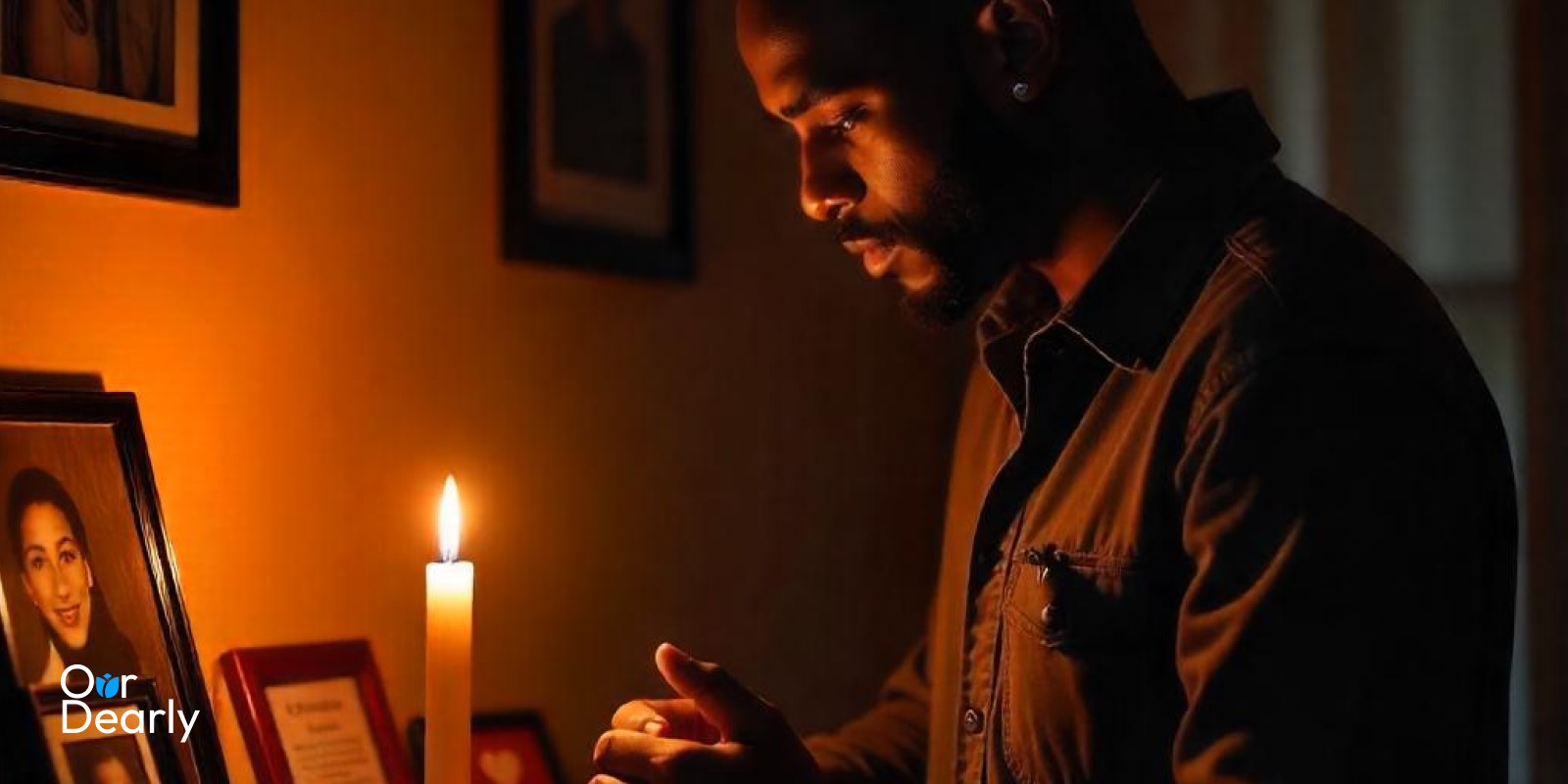Death of a Sibling: How to Cope
You just received a phone call that changed everything. In that moment, your world comes crashing down because your brother or sister with whom you shared your childhood memories is gone forever. Losing a sibling is a heart-wrenching experience that leaves a void we cannot describe. At the same time, coping with sibling loss is a journey that doesn't follow a straight line. Some days, your grief feels like a distant, dull ache. Other times, it hits you like a wave without warning. Your sibling was more than just family - they were your first confidant, your oldest friend, the keeper of your most intimate life stories.
Grieving a brother or sister is complicated and often misunderstood. When your sibling dies, it may feel like someone has torn a page out of your life's book. You may feel lost. It's as if a critical piece of your history has been erased. The loss of a sibling can make you feel alone, even when surrounded by people who care about you.
Your shared memories, inside jokes, and deep connection suddenly feel like distant memories. No one else quite understands the unique bond you shared - the childhood secrets, the family dynamics, the unspoken understanding that came from growing up together.
This guide isn't about making you forget your brother or sister. Instead, it's about helping you carry your grief with compassion, honor their memory, and find gentle ways to continue your life journey. Your pain is real. Your loss is significant. And most importantly, you are not alone in this deeply personal experience of loss and journey of healing.
People Often Overlook Sibling Grief and Loss
When we talk about grief, it’s common to focus on parents or children. But have you ever considered how siblings feel? Many people don’t realize that losing a brother or sister can be just as heavy. Siblings share deep bonds. They grow up side by side, sharing secrets and dreams. Their loss can create a unique void that others might overlook.
This kind of grief often goes unrecognized because society tends to see siblings as secondary relationships compared to the parent-child connection. However, a sibling is not just another family member. They are your first friend and confidant. Their pains deserve acknowledgment too! It’s crucial for those who have lost a sibling to express their feelings without fear of being compared or dismissed. Creating spaces for this conversation can help heal the wounds that may otherwise fester in silence, reminding everyone involved that every relationship carries its weight in love and loss.
Don't hesitate to express yourself as a sibling in this case. You may worry about burdening others with your pain, but remember that sharing your thoughts and emotions with friends or family can spark conversations filled with love and support. Consider writing them letters even if it's just for yourself; putting pen to paper helps organize chaotic thoughts and gives voice to everything you've kept inside. Every time you express your grief, whether by talking, writing, or reminiscing, you're honoring their memory in a meaningful way and allowing yourself to heal from this profound loss.
Common Emotions or Reactions to Losing a Sibling
- Shock
- Denial
- Sadness
- Anger
- Loss of appetite
- Inability to sleep
- Profound guilt
- Depression
- If your brother or sister died after a terminal illness, you may develop health anxiety or fear around hospitals or illnesses
How to Handle Grief and Cope After the Death of a Sibling?
1. Acknowledge and embrace your feelings
When we lose a sibling, emotional pain after loss can feel overwhelming. It's natural to deal with sadness in different ways; you might feel anger, confusion, or even guilt. Instead of pushing these feelings aside, it’s important to acknowledge them. Allowing yourself to experience this emotional turmoil is essential for healing from loss. Each tear, every sigh, and all those moments of reflection are part of your unique journey.
One effective way to handle grief is by expressing yourself openly, whether by talking with friends and family or writing in a journal. This release helps lighten the burden and reminds you that you're not alone in your struggle. Embrace each feeling as it comes. Give them space to breathe instead of hiding them away. Remember, healing from loss isn’t about forgetting your sibling but finding ways to carry their memory forward within your heart. 
2. Talk about your loss
After losing a sibling, expressing your feelings is crucial because it helps in navigating through this difficult time. Don’t bottle up those tears; let them flow. Many people think they need to be strong and not show their tears, but crying is a natural way to release emotions. Talk about how you feel with someone you trust or even write it down in a journal; these small acts can help lighten the heavy load of grief you're carrying.
Handling grief takes time and patience; there’s no right way to heal from loss. You might find comfort in remembering the joyful moments and memories you shared with your sibling or engaging in activities celebrating their life. Surrounding yourself with friends and family who understand your pain can also make a huge difference during this difficult time. Remember, healing doesn’t mean forgetting; it's about finding ways to cherish the memories while allowing yourself to move forward. Embrace each step of this journey, as it's uniquely yours.
3. Be kind and gentle with yourself
In times of mourning, it’s important to remember that being kind and gentle with yourself is not just a luxury – it’s a necessity. Grieving the loss of a sibling can weigh heavily on your heart and mind, so self-care during mourning becomes crucial. Do not rush yourself to feel better. Instead, allow your emotions to flow naturally. Embrace each moment as it comes, understanding that healing is complicated.
Rest and sleep more than usual. Your body needs healing during this challenging time. It’s okay for you to take breaks from daily activities or social gatherings if they become overwhelming. Sometimes, you need a quiet space to reflect or be still. Indulging in small acts of kindness towards yourself, like enjoying comforting foods or taking long walks in nature, can significantly brighten those dark days. Remember, every step taken in gentleness brings you closer to peace—so give yourself permission to take things slow and breathe through the pain.
4. Return to your daily routine
After the heavy cloud of grief begins to lift, many face the daunting task of returning to their daily routines. It can feel like trying to put on a pair of shoes that no longer fit. Everything about life feels different without your sibling. However, slowly re-engaging with everyday activities can be healing and empowering. Whether cooking your favorite meal or taking a stroll around the neighborhood, these small acts create new connections to joy amidst the pain.
It's essential not to rush the process—allow yourself space and time. You might discover that certain routines help you honor their memory in subtle ways, maybe setting a place at the dinner table or listening to music you used to enjoy together. Each day can become an opportunity for remembrance, transforming routine into tribute. Over time, you'll find strength in this blend of sorrow and celebration as you navigate life without them but still carry them within you every step of the way.
5. Honor your sibling's memory
Memorializing your loved one can bring comfort amidst the pain of losing a sibling. A powerful way to honor their memory is by creating a ritual that allows you to keep their spirit alive in your daily life. You may look at their photos or do activities that remind you of your sibling. Consider setting aside a particular day each month dedicated to doing something they loved, whether it’s cooking their favorite meal or visiting places you both enjoyed together. You can also celebrate occasions like their birthday and anniversary or create a memory box filled with their belongings. These acts are a reminder that they are forever in your heart.

Another heartfelt gesture is donating a bench or contributing to charity in their name. Imagine placing a beautiful bench in a park where you used to play as kids. Every time someone sits there, they'll remember the joy and laughter your sibling brought into the world. Charity work helps channel grief into something positive, allowing their legacy to benefit others while healing your heart at the same time. Each little act keeps memories alive and transforms sorrow into celebration, ensuring your sibling continues living on through love and good deeds.
6. Join a support group
Joining support groups is another powerful step in finding closure after the death of a sibling. These groups offer a unique space to connect with others experiencing similar feelings of loss. Unlike talking to friends or family, members of support groups deeply understand the pain that comes from losing a brother or sister because they are walking the same path of grief themselves. Sharing stories and emotions in this safe environment helps you feel less alone and allows for healing through shared experiences.
Counseling for grief support is another option worth considering with support groups. Professional counselors provide tools to help navigate sorrow and help you process your feelings more effectively. Through group discussions and one-on-one sessions, you'll learn strategies to cope with pain while discovering new ways to cherish your sibling's memory. Support groups and counseling create a strong foundation for navigating your grief journey toward eventual healing and acceptance.
7. Focus on spirituality and creativity
When you're dealing with the loss of a sibling, it can feel like a heavy cloud hangs over your spirit. But venturing into spirituality can bring some light back into your life. Engaging in prayer, meditation, or simply having quiet moments to reflect on life can help you connect with something bigger than yourself. This connection may allow you to feel your sibling’s presence, like the gentle breeze that touches your face or a song that reminds you of them.
Creativity also serves as a powerful outlet during this time. Whether it's painting, writing poetry, or cooking their favorite meal, creative expression helps release pent-up emotions and serves as a tribute to their memory. Each brushstroke or word written down holds meaning and becomes part of the healing process. Embrace these moments. They are not just distractions but pathways to understanding grief while celebrating the joy and love shared with your sibling. Transitioning through this pain is never easy, but letting spirituality guide your creativity can turn sorrow into something beautiful.
What's the takeaway?
Coping with the death of a sibling is never easy, as it can feel overwhelming at times. Allow yourself to grieve and express your emotions in whatever way feels right. Whether you prefer talking, writing, or crying, ensure your choice feels natural. Talking to family or friends who understand your pain can be very helpful, as they can provide support and comfort. Remember that healing takes time, and it’s okay to seek professional help if you need it. Take things one day at a time, and cherish the memories you shared with your sibling.



